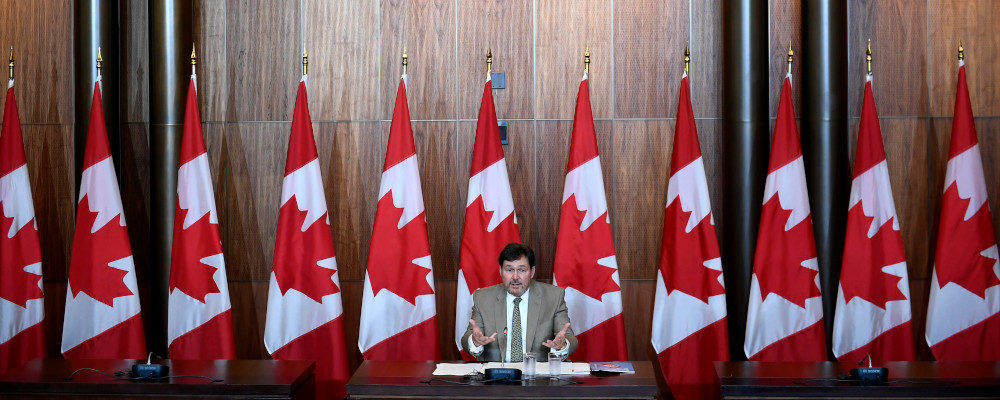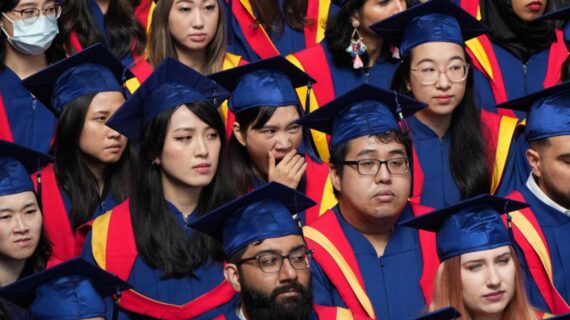Earlier this year, to mark the 40th anniversary of the patriation of the Canadian Constitution, UBC law professor Brian Bird wrote a four-part series1 for The Hub tracing Canada’s constitutional history from Confederation to the present, ending with some thoughts about our constitutional future. It is an erudite and accessible journey through more than a century and a half of legal history, which I recommend to anyone interested in understanding the significance of 1982 as an inflection point in the modern history of Canada. In my own rather more polemical series, I make the case that by 1982 Pierre Trudeau’s constitutional vision, which was grounded in the Enlightenment values of liberal rationalism, was already outdated and that Canada’s new Constitution has thrived not on Trudeau’s intended terms, but as a broadly illiberal exercise of irrational judicial power. Here is part three, with the final installment to follow tomorrow. Click here for parts one and two.
It is not clear how much of the constitutional change that Canada has experienced since 1982 Pierre Trudeau anticipated, or whether his constitutional revolution took on a life of its own as revolutions tend to do. He may have been naïve enough to think that, contrary to almost all exercises of unchecked power in history, his new liberal rationalist constitution would be contained by the judges charged with interpreting and applying it.
There is some evidence that he believed that courts would use their newfound powers only to rein in the most extreme excesses of the democratic spirit, but not to pre-empt democratic debates over social policy. In 1981, while the Constitution was still under consideration, Trudeau wrote to Cardinal Carter, the then-Archbishop of Toronto, to assure him that Canadian courts would not be able to discover an implicit right to abortion in the Charter’s vague guarantee of “life, liberty, and security of the person,” as the U.S. Supreme Court had recently done in their Bill of Rights.
Trudeau wrote that he believed it was right that “the Charter should remain neutral on the issue, leaving it to be debated and resolved from time to time in Parliament rather than before the courts.” In a subsequent letter to the Cardinal, Trudeau insisted that “the Charter is absolutely neutral on the issue of abortion” and that this was also “the interpretation of senior officials and agents of the Department of Justice and…the Minister himself.”
He added that, if a court ever did overstep and presume to decide questions of social policy, “Parliament will continue to legislate on the matter by overriding the court’s decision.” It is possible that Trudeau was dissembling, but I don’t think so. He was a serious Catholic and unlikely to commit himself on official letterhead—and to a Prince of the Church, no less—to such deception.
Whatever Trudeau’s intentions, the liberal constitutional project proceeded in Canada along the same lines it had in the United States and for the same reason: once the liberal conception of rights as claims against society is introduced into a political order, it cannot be contained to discrete and defined areas of law or public policy. Because it claims the authority of a universal principle, it must spread and occupy every corner of society, colonising our speech and even how we think about every question of law and morality up to and including questions of life and death. It runs riot over society’s settled expectations under the banner of reason.
Yes, defenders of the new order reply, judges now have the power to apply a rational lens to the policy that emerges from parliament, and who could object to that? Objecting to rational supervision of the law would be per se unreasonable. And who would support unreasonable policies? This way of thinking is wrong in three ways.
First, it assumes that judicial rationality is, in fact, objectively reasonable. In practice, it has more often been the imposition of a liberal ideology that views rights as one-way claims by individuals against society, rather than beginning with an idea of the common good and determining what is properly owed to a person or to a group within that socially-embedded context. At best, the current approach to judicial review is a contestable ideological choice, and by no means the best one.
Second, it assumes the problems that judges are taking up are capable of definitive political answers. But questions like assisted suicide (Carter v. Canada), Sunday closing laws (R. v. Big M Drug Mart Ltd.), and prisoner voting (Sauvé v. Canada) are not so easily resolved, and especially not by pretending they can be decided objectively by legal reasoning. It is not surprising that each of these questions has been decided differently by the courts in peer countries. They involve moral choices, and the Canadian Supreme Court’s approach to rights, which prioritises near-absolute individual autonomy, is not the only—or, in some cases, even a—viable moral choice. These choices are the stuff of politics, not law, because they are the choices we make to decide who we are as a people and how we define the character of our polity.
Third, not only are judges not trained in (or chosen for their) moral and political reasoning, it is not clear why, even if they were, we should prefer to be subjected to the unreviewable reasoning of judges than the reviewable reasons of elected representatives. Surely, when it comes to questions of life and death, it is at least plausibly rational to prefer the risk of political error that can be corrected politically over the risk of incorrigible judicial error. That seems to have been Trudeau’s view when he contemplated the possibility that courts might be tempted to assume oversight of social policy in his letters to Cardinal Carter. As it turns out, he had too much faith that rationality could be rationally contained.
Shortly after the new Constitution was enacted, the Supreme Court of Canada signalled its intent to break with the expectations of the democratic bodies that enacted it as well as with the method of developing the law case by case in a way that reinforced existing social practices and norms.1See Reference re Section 94(2) of the Motor Vehicle Act (1985). Instead, it would look to international constitutional courts and to an outpouring of new homegrown academic theories for more radical inspiration. The most consequential and enduring example of this was the adoption of the German legal model of proportionality review in the 1986 case of R. v. Oakes.
The Oakes test, which was introduced in the second part of this series, marked the end of Trudeau’s liberal dream. The principle of proportionality that it introduced, while purporting to be a rigorously rational method of adjudication, undermined the new Constitution’s rational pretensions. Because it leaves the key decisions to individual judges, no matter how well-intentioned and serious a judge is, when the method is applied to pre-rational custom or contestable moral questions the outcome is unavoidably subjective.
The legitimacy of liberal constitutionalism depends on its claim that courts are justified in ensuring that society is rationally ordered, even to the point of nullifying the ostensibly reasoned decisions of elected and accountable legislatures. This claim, in turn, is based on the assumption that the courts’ decisions are based on a superior objective rationality. But if the decision-making process at the heart of liberal constitutionalism is itself irrational, then the whole system is compromised.




